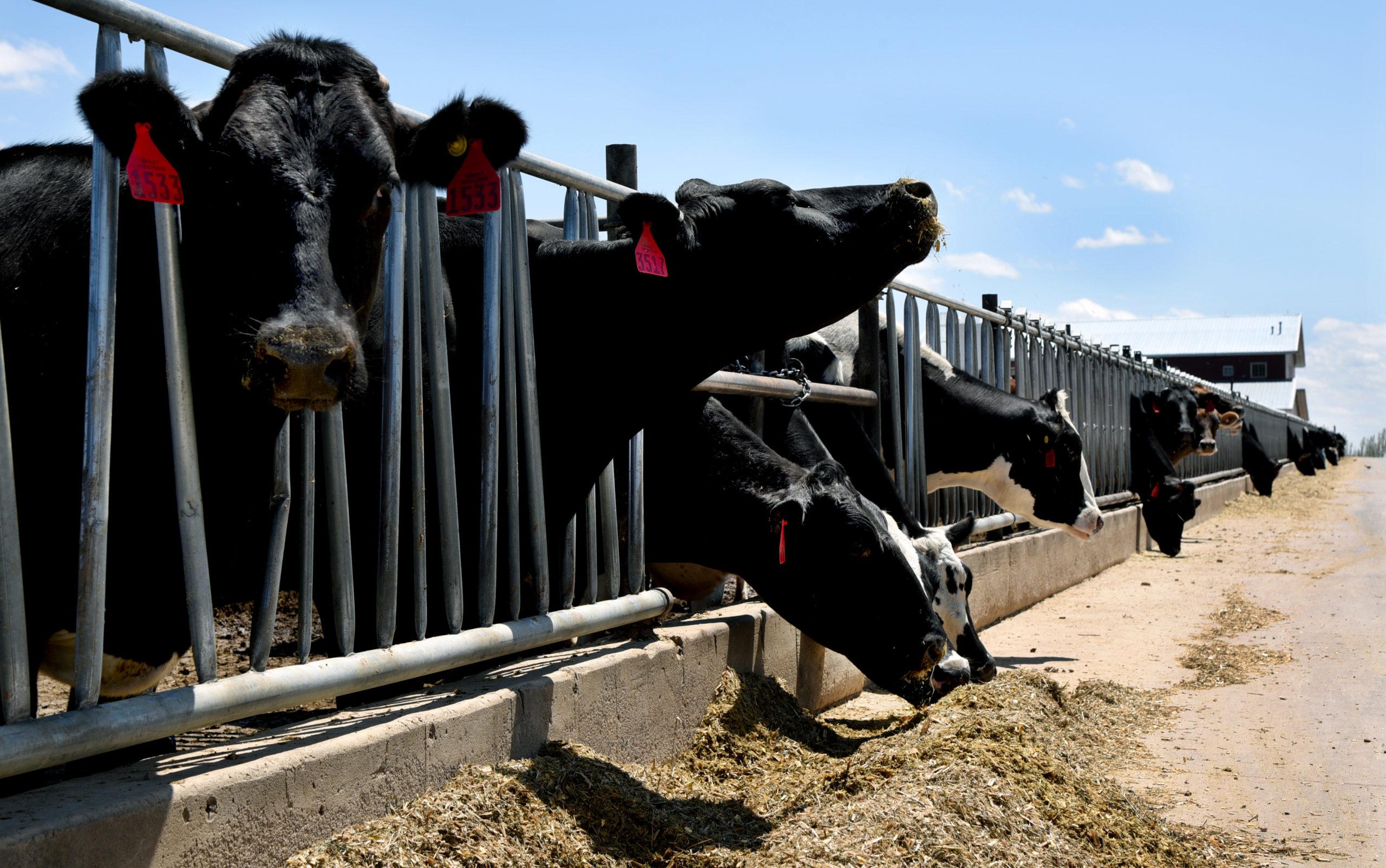
Great Western Dairy in Weld County is on the shortgrass prairie just south of Colorado’s border with Wyoming. Its enormous red barn is surrounded on three sides by a mix of black and white, black, and brown Jersey crossbred cows.
The 4,400 cows get milked twice a day. Together they produce 13 million gallons a year, with a mechanized operation that runs through the night — until a couple of weeks ago when the tanker truck didn’t arrive to pick up the milk.
“All the tanks were full,” said Casey DeHaan said, who runs the dairy with his father, Larry DeHaan. “There was just a huge backlog of trucks and the plants were getting backed up. We had to stop milking for a while and we were almost to the point where we had to start dumping milk. We came real close.”
That’s because when states went on lockdown, schools, restaurants, coffee shops and other businesses stopped buying milk.
It was supposed to be a breakout year for the dairy industry. Farmers had endured several years of roller-coaster prices. Instead, this spring, farmers like the DeHaans have gotten a shock. In some other states, they have actually had to dump out milk.
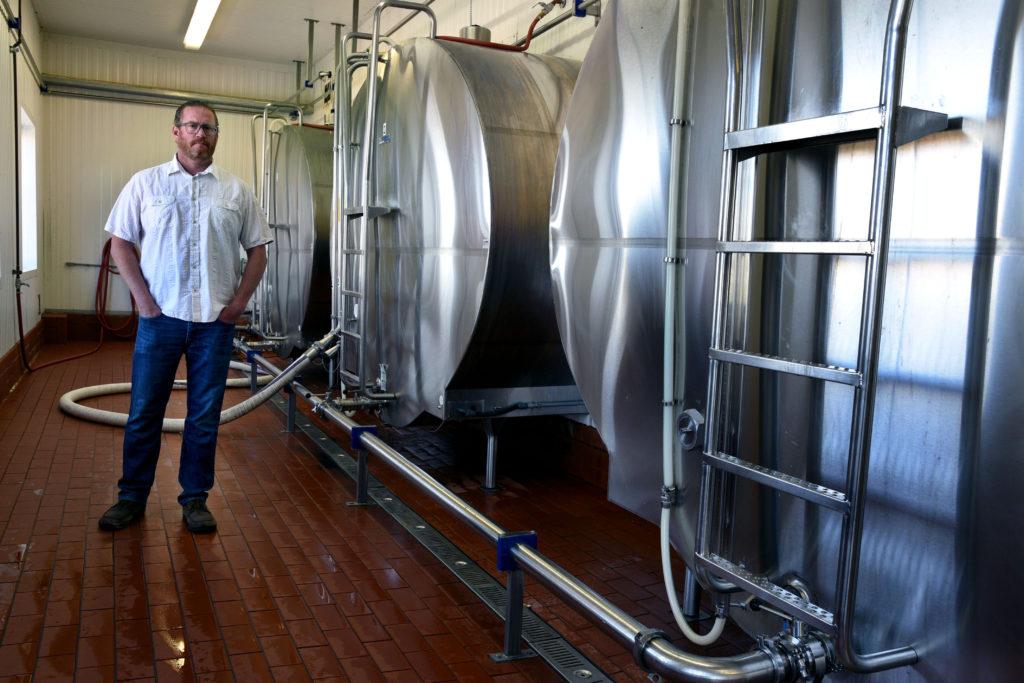
The pandemic struck during the spring flush. In March, April and May, cows produce their most milk.
“COVID-19 hit just as milk production was coming to its greatest peak and just when demand dropped out from underneath us,” said Dennis Rodenbaugh, executive vice president of Dairy Farmers of America. The cooperative is owned by 8,500 dairy farmers across the country, including about a hundred in Colorado.
Before the shutdown, there was a brief period when instead, demand was through the roof.
“Consumers dashed to the retail stores,” Rodenbaugh said. “They picked up as much milk as they could possibly carry. We ramped up and delivered 25 percent more milk that we typically do to keep up with that supply.”
But then the shutdown happened, and cold storage areas were full up with cheese and milk, with no restaurants or schools to sell it to.
Processors made the calls that dairy industry leaders dread.
“They simply had to call us up one night — and it was like a light switch — and say we don't need any more milk,” Rodenbaugh said. “And can you have the trucks that are in the parking lot turnaround?”
In turn, the cooperative had to call their dairy members in the Upper Midwest and the Northeast, warning them to throw out their product without anywhere to send it. The most cost-effective thing to do is to dump it at the farm before it goes to the processing plant. So far, Colorado producers haven’t had to jettison milk.
“Our last resort is dumping milk,” Rodenbaugh said.
“The old saying that you don't cry over spilled milk, it's wrong,” Rodenbaugh said. “You do. It’s hard work. Blood, sweat, tears, love and passion went into making that milk and to watch it go down the drain, and I've had to do it myself, it’s heartbreaking.”
Great Western Dairy co-owner Casey DeHaan said since nearly having to dump milk themselves, their operation has stabilized a little, in large part because last December they signed futures contracts.
“It’s very possible a lot of dairy farmers don't survive this,” DeHaan said, “but I took advantage of being able to lock in a lot of my prices for the next year.”
DeHaan bought price insurance through the USDA’s Dairy Revenue Protection Program, which helps manage farming risks.
“It’s turning out to be really a savior for surviving this year,” he said.
In fact, DeHaan donated 9,000 gallons of raw milk to the Dairy Farmers of America’s Colorado drive, in part because the milk was available, but also at a $10,000 expense to the farm. The dairy group’s members processed it and delivered it as part of a total of 34,000 gallons of milk to area food banks.
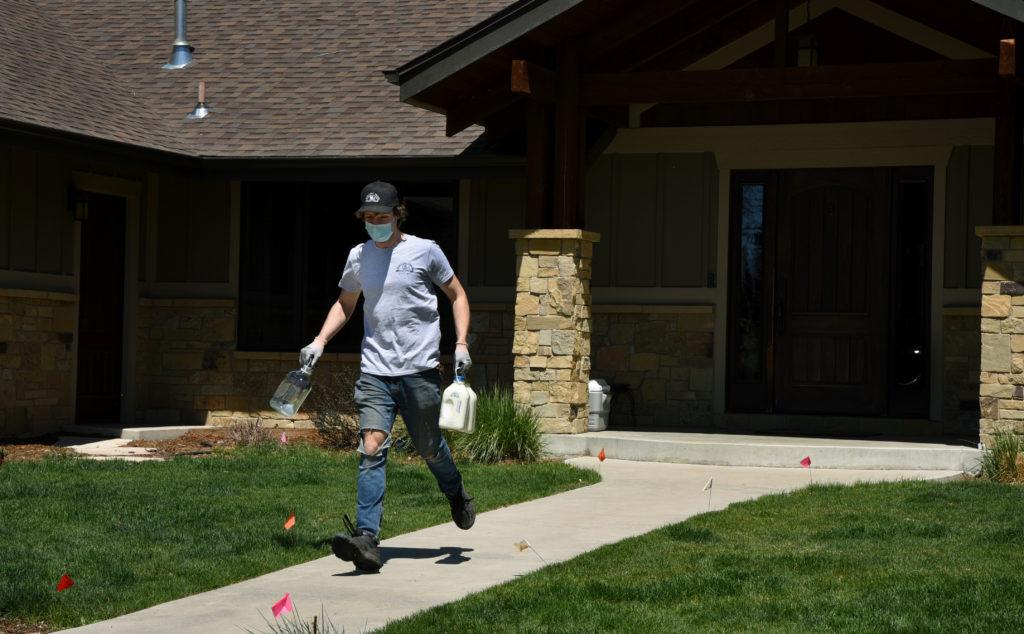
At least a few dairies are thriving right now because the demand for home delivery is way up.
Luke Padula runs a milk route to homes around Fort Collins for Morning Fresh Dairy.
“One of the reasons I like being a milkman right now is to keep customers out of the grocery store,” he said.
On a recent Tuesday, Padula sprinted from the truck to each house carrying ice-cold glass bottles and loaded them into a cooler on the porch. He ran back, carrying empties. His route has grown by dozens of new customers.
Padula grew up in Wisconsin.
“I’ve kind of seen the death of small independently bottled dairy,” he said, “so it's really cool to be able to support independently bottled milk in the Front Range.”
Morning Fresh has a waiting list for new delivery customers, as does Longmont Dairy. Co-owners and siblings Katie Herrmann and Dan Boyd say their home milk service is up 30 percent during the pandemic, with customers from Loveland down to Parker, from Golden out to Commerce City. The staff of more than a hundred is working its way through new subscriptions, a list that’s a thousand customers long.
“It really happened overnight. Once the milk was hard to find at grocery stores — it was the middle of March — that’s when the online signups just exploded,” Herrmann said.
Longmont Dairy has delivered milk in glass bottles since 1965. Its 25,000 customers are nearly all residential. Since the stay-at-home orders were announced, Herrmann and Boyd have purchased more cows and trucks, are hiring more drivers and delivering around the clock. They used to only deliver at night since less traffic on the roads makes for more efficient routes.
“There are more challenges with doing daytime delivery,” Herrmann said, “but we're just doing anything we can to get the products out there right now. So this is probably a temporary solution.”
Each driver now delivers to 200 households, which is 50 more than normal.
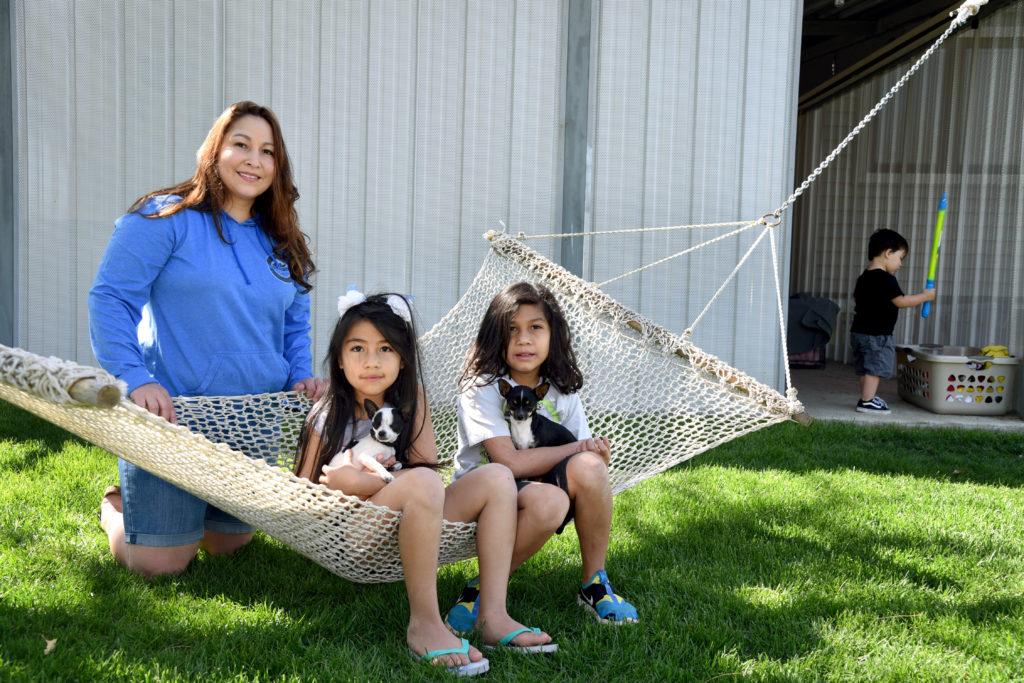
Amy Barcenas of Thornton signed up for Longmont Dairy’s service in the winter, just before the waiting list exploded. She orders special high protein milk, as well as strawberry, chocolate and 2 percent for her children and grandson, all under age nine. The decision to sign up for milk delivery last winter now feels providential.
“When something like this happens,” Barcenas said, “you don't realize how much is on a mother's shoulders. I was like, ‘Thank God we don’t have to worry about this.’ These kids go through so much milk, it’s insane.”
Two of her children have asthma, so they’ve stayed home since the schools were closed. Barcenas and her husband limit their trips to the grocery store for fear of COVID-19 exposure.
“I decided to just stay home,” she said. “So that's what we're trying to do, is create this oasis here.”
Katie Herrmann expects the surge of new customers for Longmont Dairy to continue. Along with milk, they deliver eggs, bagels, coffee, juice and meal kits.
“Even though people are starting to go out and about,” Herrmann said, “they still are going to want as many things being delivered to them as possible.”
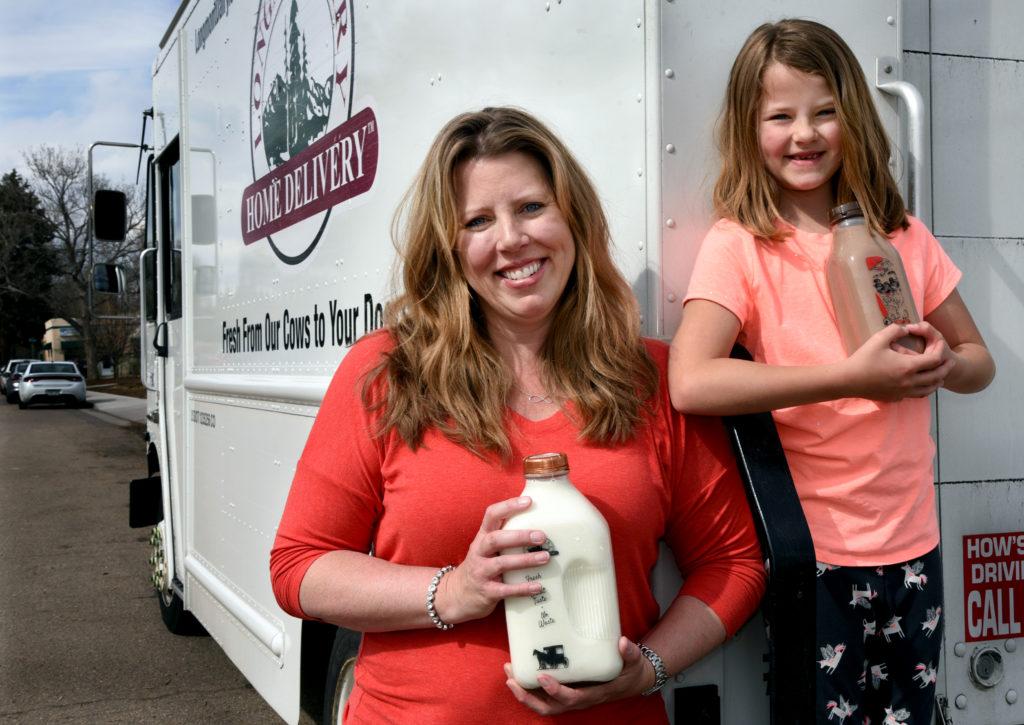
Herrmann and Boyd are responsible for a herd of 500 to 600 Holstein, the familiar black and white dairy breed. As third-generation dairy farmers, their commitment is deep.
“Whether we're dealing with some sort of crisis like this or a snowstorm or a holiday, the cows always need to be milked three times a day,” she said. “We need to keep getting the milk to the plant. We need to keep bottling the milk. We need to keep getting the milk to the customers. It's a process that can't stop.”
All this demand is one reason that Casey DeHaan believes his business will thrive long after the pandemic.
“I'm confident, you know, that the best days are ahead of us and if you can get through a challenge,” DeHaan said, “You can see the other side of it and should be good. Right?”
While DeHaan talked, the milking continued in the barn, just as it has for his family for more than a century.









